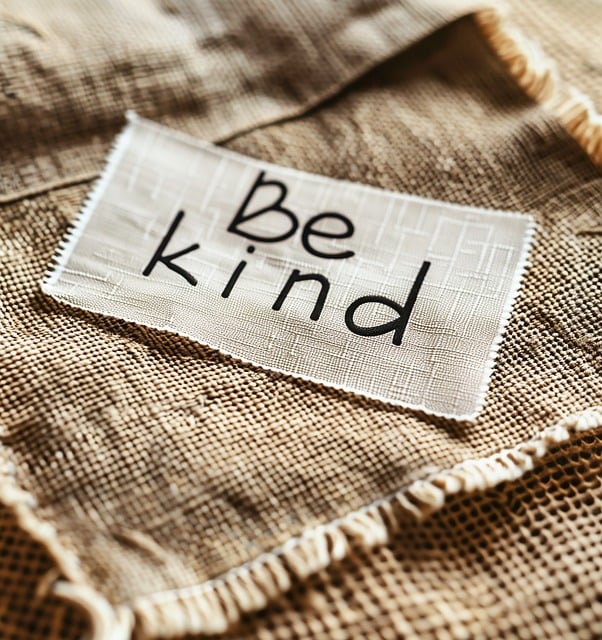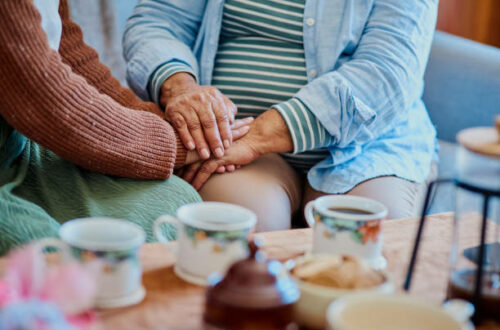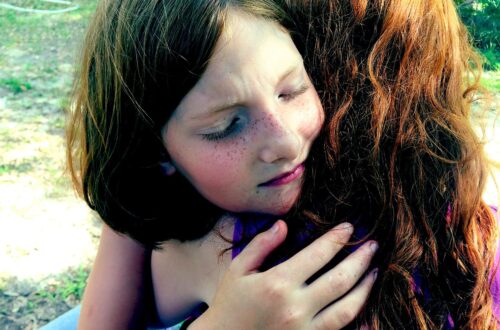
Family Caregivers: Why Kindness Matters
“Constant kindness can accomplish much. As the sun makes ice melt, kindness causes misunderstanding, mistrust, and hostility to evaporate.”—Albert Schweitzer.
Are you caring for an ill loved one—a parent, child, or sibling?
If so, you are one of the 53 million US adults doing so.
You are a “Family Caregiver.”
Shelly’s Story:
“Mom is becoming increasingly incontinent. She hates being cleaned up and changed. She insists on keeping her soaked in Depends diaper. She fights me tooth and nail when I am trying to help her. She screams, cries, and gets us both worked up.
“I know this is due to the disease, but in the heat of the moment, I often find myself just reacting out of my frustrations.
“Today, we started the same insane dance. Mom was crying for help, and I tried to help her. She stayed in this loop, fighting me each step of the way.
“I found myself taking deep breaths, deciding to stop the struggle. I lifted her face in my hands until she could see me and look into my eyes. I held eye contact for a heartbeat and said calmly, ‘Mom, I am trying to help you. Do you want me to help you?’
“Suddenly, all the anger and fear melted from her face. She said, ‘I love you.’ And just like that, the tantrum was over, and I managed to get her cleaned up and out of the bathroom.
“I hope I can do this again next time—and the time after that. We are growing so tired of struggling with each other as we battle this horrific disease.
“Remember to breathe today. Remember the love you have—even when it seems so far away.”
(Source: A Family Caregiver’s Guide: 7 Secrets to Replace Negative Triggers with Positive Emotions 2019)
As a family caregiver, can you identify with Shelly?
Do you often feel anxious when caring for a loved one?
Shelly’s experience exemplifies how love and kindness can help a family caregiver feel fewer negative emotions and instead feel calmer, more in control, and at peace.
What Is Kindness?
“Kindness is a type of behavior marked by acts of generosity, consideration, rendering assistance, or concern for others, without expecting praise or reward in return. It is a subject of interest in philosophy, religion, and psychology.” Wikipedia
But what does kindness mean to you?
Do you act kindly towards others?
Caring for an ill loved one can be the most challenging (and thankless) job you will ever have, but in these circumstances, would someone describe you as kind?
If you are stuck on answering the above questions, this article will help you understand the quality of kindness and discuss how you can express kindness in different ways, big and small.
Quality of Kindness
Kindness is a fundamental quality of human nature, often regarded as one of the most valuable virtues.
It involves being considerate, compassionate, and empathetic towards others, regardless of their background, circumstance, or beliefs.
Here are some significant aspects of the quality of kindness:
- Compassion: Kindness is rooted in compassion, which is the ability to understand and share the feelings of others. Compassionate individuals are sensitive to the needs and struggles of others and are willing to offer support and assistance.
- Empathy: Empathy is the ability to put oneself in another person’s shoes and understand their emotions and experiences. Kind individuals are empathetic, which allows them to connect with others on a deeper level and respond to their needs with understanding and care.
- Generosity: Kindness often involves acts of generosity, such as offering help, complimenting, or sharing resources without expecting anything in return. Generous gestures can have a significant positive impact on both the giver and the recipient.
- Respect: Kindness also entails treating others with respect and dignity, regardless of differences in opinion, background, or lifestyle. Respecting others’ autonomy and choices is essential for fostering positive relationships and creating a harmonious society.
- Forgiveness: Kindness involves forgiving others for their mistakes or shortcomings. Forgiveness is a powerful act of kindness that can promote healing, reconciliation, and personal growth.
- Altruism: Kindness often involves selfless acts that benefit others without seeking personal gain. Altruistic individuals prioritize the well-being of others and are willing to make sacrifices to help those in need.
- Positive impact: Kindness creates positive ripple effects in the world. Small acts of kindness can inspire others to pay it forward, leading to a chain reaction of goodwill and compassion.
Kindness is a transformative quality that fosters connection, empathy, and understanding among individuals and promotes a more compassionate and inclusive society.
Cultivating kindness in oneself and encouraging it in others can lead to a more harmonious and fulfilling way of life.
And if you are in similar circumstances as Shelly mentioned above, fulfilling the role of family caregiver, kindness towards you, the caregiver, is especially crucial for several reasons:
- Emotional Support: Caregiving can be emotionally draining. Kindness from family members, friends, or even strangers can provide emotional support, which is vital for you, the caregiver, to cope with the stress and challenges.
- Reducing Stress: Kindness lowers stress levels. Acts of kindness, whether a kind word, a gesture of appreciation, or assistance with caregiving tasks, can help you feel less overwhelmed and more capable of handling your responsibilities.
- Building Resilience: Kindness fosters resilience. When caregivers feel supported and appreciated, they are better able to bounce back from difficult situations and continue providing care effectively.
- Enhancing Relationships: Kindness strengthens relationships between caregivers and care recipients. It fosters a sense of connection and mutual respect, which is essential for maintaining a positive caregiving dynamic.
- Promoting Well-being: Kindness contributes to the overall well-being of both caregivers and care recipients. Acts of kindness can boost mod, increase feelings of happiness, and improve the quality of life for everyone involved.
- Preventing Burnout: Caregiver burnout is a significant concern. Kindness helps avoid burnout by providing caregivers with the support and encouragement to prioritize self-care and maintain a healthy balance between caregiving responsibilities and their needs.
- Creating a Positive Environment: Kindness creates a positive caregiving environment. When caregivers and care recipients treat each other with kindness and compassion, it fosters a sense of warmth, understanding, and trust within the family unit.
Kindness matters for family caregivers because it enhances emotional well-being, reduces stress, strengthens relationships, promotes resilience, and ultimately contributes to a more positive caregiving experience for everyone involved.
How You Can Express Kindness
Showing kindness can be expressed in countless ways, both big and small.
Here are nine (9) ideas:
- Smile: My favorite. A simple smile can brighten someone’s day and make them feel seen and valued.
- Listen: Take the time to listen to someone without interrupting or judging. Show genuine interest in what they have to say.
- Offer help: Whether holding the door open for someone, carrying groceries, or assisting someone with a task, offering help can make a big difference.
- Say thank you: Express gratitude to others for even the most minor acts of kindness they show you.
- Compliment: Give sincere compliments to others. It could be about their appearance, work, or something they have done well.
- Volunteer: Offer your time to volunteer for a cause you care about or to help someone in your community.
- Be patient: Practice patience and understanding, especially when others struggle or move slower than you.
- Include others: Try to include people who may feel left out or lonely, whether at school work or in your community.
- Forgive: Let go of grudges and practice forgiveness towards others, even when difficult.
So, there you have it!
Kindness is being friendly, generous, considerate, and compassionate towards others.
Kindness involves showing empathy, understanding, and a willingness to help or support others without expecting anything in return.
Acts of kindness can be small gestures, volunteering, helping, or more significant actions, such as donating to charities.
Kindness is essential for fostering positive relationships and building trust.
Kindness is also about making a positive difference in the lives of others and contributing to the whole community’s well-being.
Now, go out there and begin practicing kindness today!
Key Takeaways
- What is kindness?
- Kindness is crucial for family caregivers.
- Kindness is a fundamental quality of human nature.
- There are numerous benefits to the person practicing kindness.
- Kindness can be expressed in countless ways, both big and small.
“Kindness is doing what you can, where you are, with what you have.”—Raktivist.




